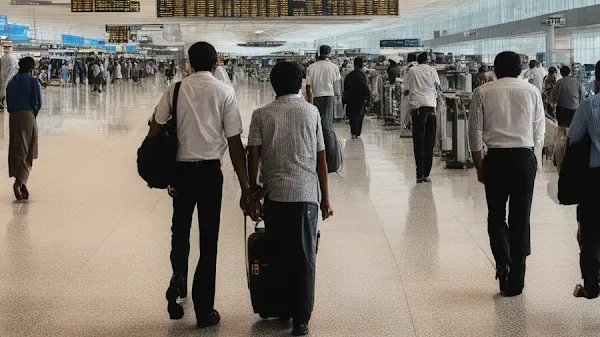Traveling to India is an exciting adventure filled with vibrant cultures, delicious cuisines, and stunning landscapes. However, before you dive into the experience, you’ll need to navigate Indian customs upon arrival. Knowing what to declare can ensure a smooth entry and kickstart your journey on the right foot. This guide breaks down the essentials of Indian customs declarations to help you travel with confidence.
Table of Contents
- Goods Above the Duty-Free Allowance
- Currency
- Gold and Precious Metals
- Electronics and High-Value Items
- Medication
- Food Items
- Plants and Seeds
- Artifacts and Cultural Items
- Tips for a Smooth Customs Experience
- Frequently Asked Questions
The Essentials of Indian Customs Declarations
All travelers entering India must pass through customs and declare specific items to comply with local laws. Understanding these requirements helps avoid delays, fines, or confiscation. Here’s what you need to declare:
Goods Above the Duty-Free Allowance
India permits duty-free import of certain items within limits, such as 2 liters of alcohol, 100 cigarettes, and gifts or souvenirs up to a specified value. Items exceeding these allowances must be declared, and duties may apply.
Currency
If you’re carrying Indian or foreign currency above the permitted limit (typically USD 5,000 in cash or USD 10,000 in other instruments), you must declare it. Check the latest thresholds on the Indian Customs Service website before traveling.
Gold and Precious Metals
Gold and precious metals are strictly regulated. If you’re bringing gold beyond the personal use limit (e.g., 20g for men, 40g for women), you must declare it and pay duties. Learn more about gold import rules.
Electronics and High-Value Items
High-value electronics like laptops, cameras, or smartphones beyond personal use (e.g., one laptop per person) require declaration. Additional items may incur duties, so be prepared to present receipts or documentation.
Medication
Personal medications are generally allowed, but large quantities or controlled substances (e.g., narcotics) must be declared. Carry a doctor’s prescription and declare these items to avoid issues.
Food Items
Certain food items, especially dairy, meat, or fresh produce, are restricted or prohibited due to health regulations. Declare any food items, particularly in large quantities, to comply with customs rules.
Plants and Seeds
Plants and seeds may carry pests or diseases, so they require declaration and often a phytosanitary certificate. Check with customs officials to ensure compliance with agricultural standards.
Artifacts and Cultural Items
India protects its cultural heritage with strict laws. Artifacts or items resembling cultural property must be declared, and you may need export permits or documentation to avoid legal issues.
Tips for a Smooth Customs Experience
- Be Prepared: Keep passports, visas, receipts, and certificates easily accessible.
- Honesty is the Best Policy: Declare items truthfully to avoid penalties or confiscation.
- Know the Limits: Review duty-free allowances and restrictions on the official Indian customs website.
- Ask for Help: If unsure, consult customs officials for guidance—they’re there to assist.
Frequently Asked Questions
Do I need to declare personal items like clothes?
Personal items like clothes for your own use typically don’t need to be declared unless they exceed reasonable quantities.
Can I bring alcohol as a gift?
You can bring up to 2 liters of alcohol duty-free. Quantities above this must be declared, and duties may apply.
What happens if I don’t declare restricted items?
Failure to declare restricted items can lead to fines, confiscation, or legal action, depending on the item.
Planning your trip to India? Share your customs experiences or ask questions in the comments below, and explore more travel guides at India Baggage Rules.





No comments:
Post a Comment